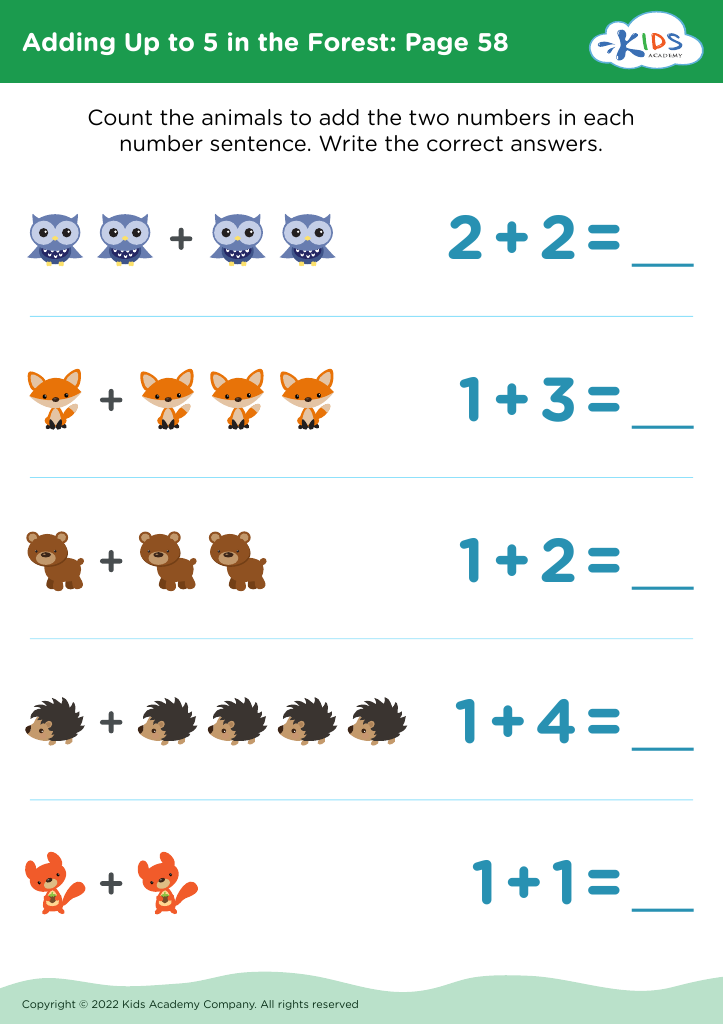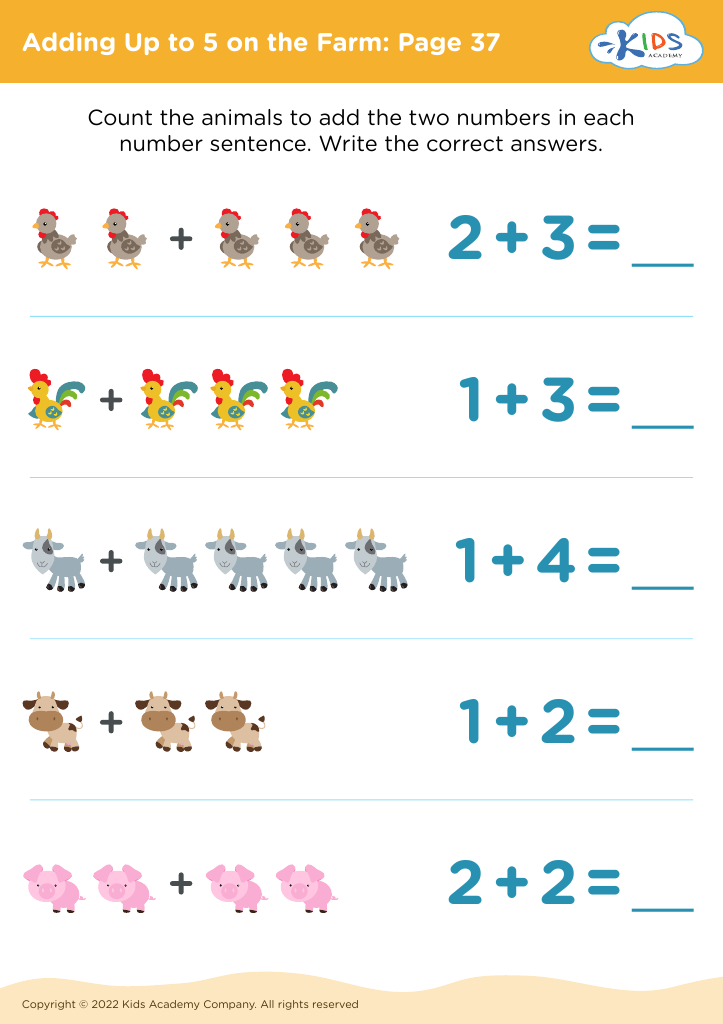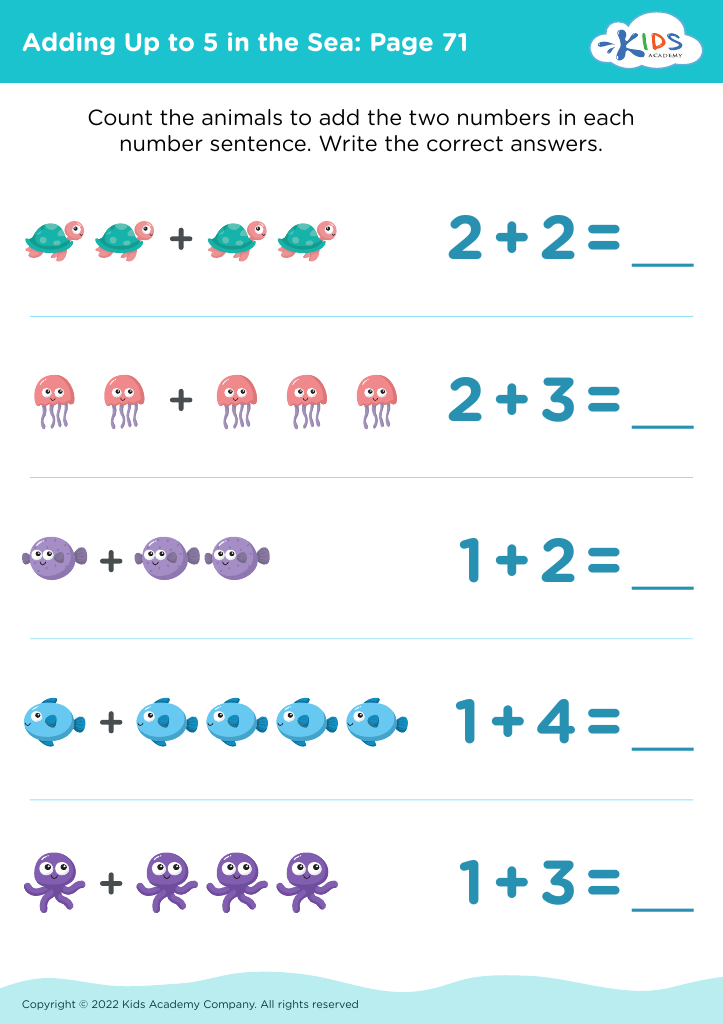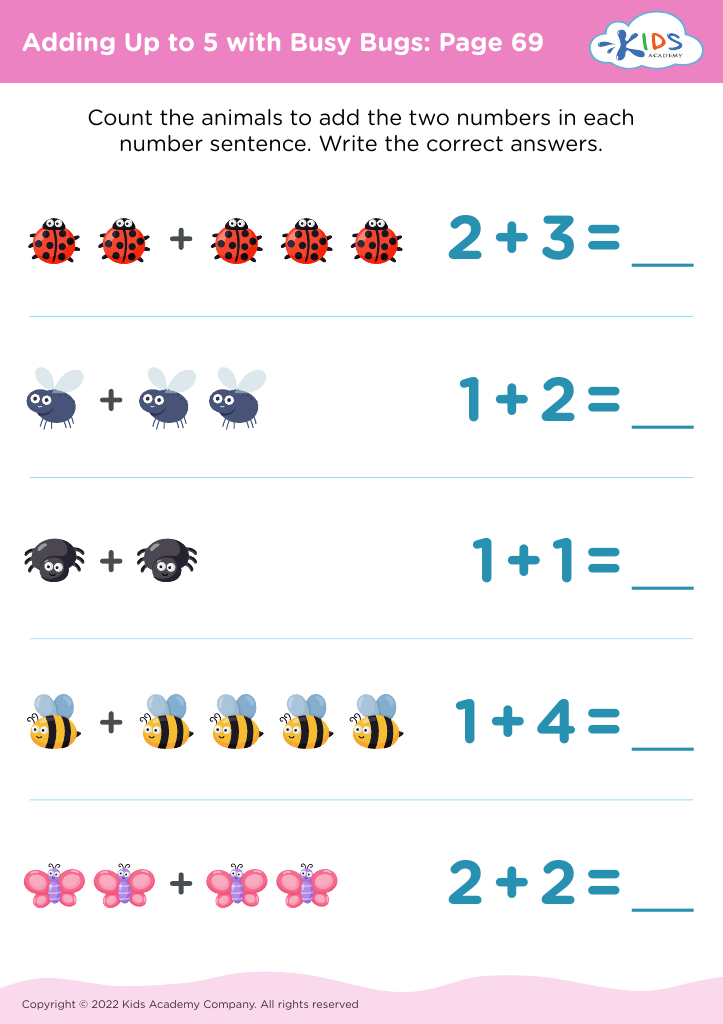Understanding numeracy Adding Up to 5 Worksheets for Ages 3-4
4 filtered results
-
From - To
Introduce your little learners to the world of numbers with our "Adding Up to 5 Worksheets" designed specifically for ages 3-4. These engaging and colorful worksheets help children develop foundational numeracy skills through fun activities focused on addition. Your child will practice counting, recognizing numbers, and improving their problem-solving abilities as they add up to 5 in various interactive ways. Our carefully crafted exercises not only reinforce essential math concepts but also cultivate a love for learning. Enhance your child's early math skills with our playful and effective resources, fostering confidence and excitement in their journey to understand numeracy. Explore today!
Understanding numeracy, particularly adding up to 5 for ages 3-4, is crucial for a child's early development. Parents and teachers should prioritize this skill because it lays the foundation for more advanced mathematical concepts. Early numeracy skills, like counting and simple addition, foster critical thinking and problem-solving abilities, which are essential across all areas of learning.
At this age, children are naturally curious and eager to explore numbers, and engaging them in activities related to adding up to 5 can make math fun and relatable. By using everyday situations—like sharing snacks or playing games—parents and teachers can create meaningful learning experiences that promote collaboration and social skills.
Moreover, developing these skills at an early age can significantly impact a child’s confidence and attitude towards mathematics. Individuals with a strong foundational understanding of numeracy are more likely to experience academic success and enjoy learning throughout their educational journey.
Lastly, early numerical understanding plays a crucial role not just in STEM experiences later in life but in everyday tasks, such as budgeting and cooking, ensuring children develop important life skills. In short, nurturing numeracy skills at this tender age sets children up for long-term success in both academic and real-world scenarios.







.jpg)
%20(1).jpg)












